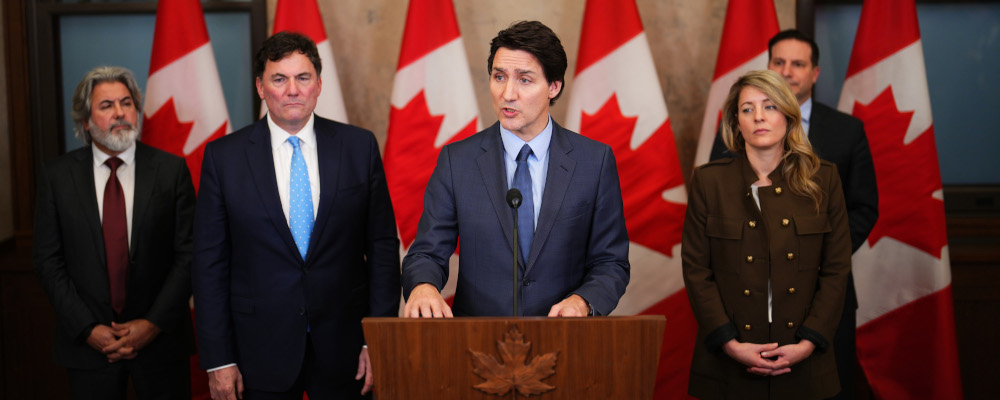In broad terms, there were two possible outcomes from David Johnston’s investigation into the Chinese interference scandal.
The first was evidence of political corruption. He could have found that the government’s failure to respond to the growing body of intelligence on Chinese interference in Canadian democracy was due to purposeful neglect on the part of the prime minister, his Cabinet, and their staff because those efforts aided the Liberal Party’s partisan interests.
The second was evidence of basic state failure—that is to say, the billions of dollars that we spend on intelligence gathering, analysis, and policy adoption were effectively wasted because of a lack of clarity around information sharing, the persistence of institutional siloes, and disinterest on the part of the political arm of the government.
Johnston’s report points in the second direction. He says that he found no specific evidence of gross political negligence. Instead, the main issue was that the intelligence that was collected and analyzed never seemed to make it to political actors. In the case of the intelligence on the targeting of MP Michael Chong, for instance, we’re told that while it was sent to Public Safety Minister Bill Blair and his chief of staff, it was sent through a top-secret email system for which they seemingly lacked log-in details.
The Trudeau government may feel buoyed by the fact that Johnston failed to find evidence of political malfeasance, but that ought to be little relief for Canadians. His report reinforces the mounting evidence that Pierre Poilievre’s diagnosis is essentially correct: Canada is broken.
We like to talk about how our public services are a major comparative advantage for the country and turn up our noses to the political dysfunction in the United States. But it seems pretty clear that American state capacity is stronger than Canada’s.
Just consider these recent examples:
- When it came to the COVID-19 pandemic, the U.S. initiated Operation Warp Speed that produced multiple vaccines on a historic timeframe. The National Research Council, by contrast, signed a self-evidently dumb deal with China and produced no vaccines.
- The B.C. government is now sending its cancer patients to the U.S. for treatment like they’re citizens from a third-world country.
- And while U.S. intelligence services have helped Ukraine hold off the much-stronger Russian forces, key Canadian intelligence players (including the cabinet minister) cannot seem to figure out how to get into their email accounts.
As I’ve written before, there’s a strong case that we’ll probably have to have more government rather than less in the coming years due to aging demographics, growing geopolitical threats, and climate change. Yet these high-profile cases of government failure raise serious questions about our government’s ability to carry out its core functions—let alone plan for and respond to new and emerging ones.
In that sense, while Johnston’s report may not contain a smoking gun, it would be wrong to characterize it as somehow favourable to the government. It’s a more persuasive case for limited government than any think-tank paper or political speech could ever aim to deliver.
This is in large part due to the stark dichotomy between the seriousness of the issue and the government’s own unseriousness. Last year’s protracted passport delays may have been an annoyance but in relative terms, they were mostly trivial. We now know from Johnston’s report that the federal government’s brokenness has exposed our democracy to foreign interference.

His specific findings will undoubtedly lead to various reforms to improve information sharing, reporting to the prime minister, and so on. But these changes will not address the report’s more fundamental insights about the causes and consequences of government failure.
On this point, the conventional libertarian critique of big government resonates more and more these days in the face of a government that spends more, employs more, and yet seems less capable of carrying out its basic functions. As a former colleague at the University of Toronto used to regularly tell students, a government that tries to do too much invariably does nothing well at all.
At a time when the Trudeau government is asking Canadians to trust its ability to engineer an industrial transformation—starting with putting an end to the internal combustion engine in the next decade—its essential argument on the Chinese interference story is that the state wasn’t negligent. It was simply incompetent. It’s a tough marketing message for its progressive ambitions.
A government that can permit years of foreign interference in its democracy because it cannot figure out its email log-in is hardly one to trust to re-engineer the economy or much else for that matter.
Recommended for You

‘There are consequences to this legislation’: Michael Geist on why the Canada-U.S. digital services tax dustup was a long time coming

Rudyard Griffiths and Sean Speer: The future of news in Canada: A call for rethinking public subsidies

‘You have to meet bullying with counter-bullying’: David Frum on how Canada can push back against Trump’s trade negotiation tactics

‘Our role is to ask uncomfortable questions’: The Full Press on why transgender issues are the third rail of Canadian journalism




